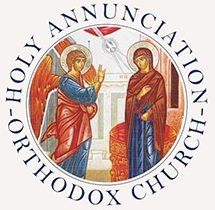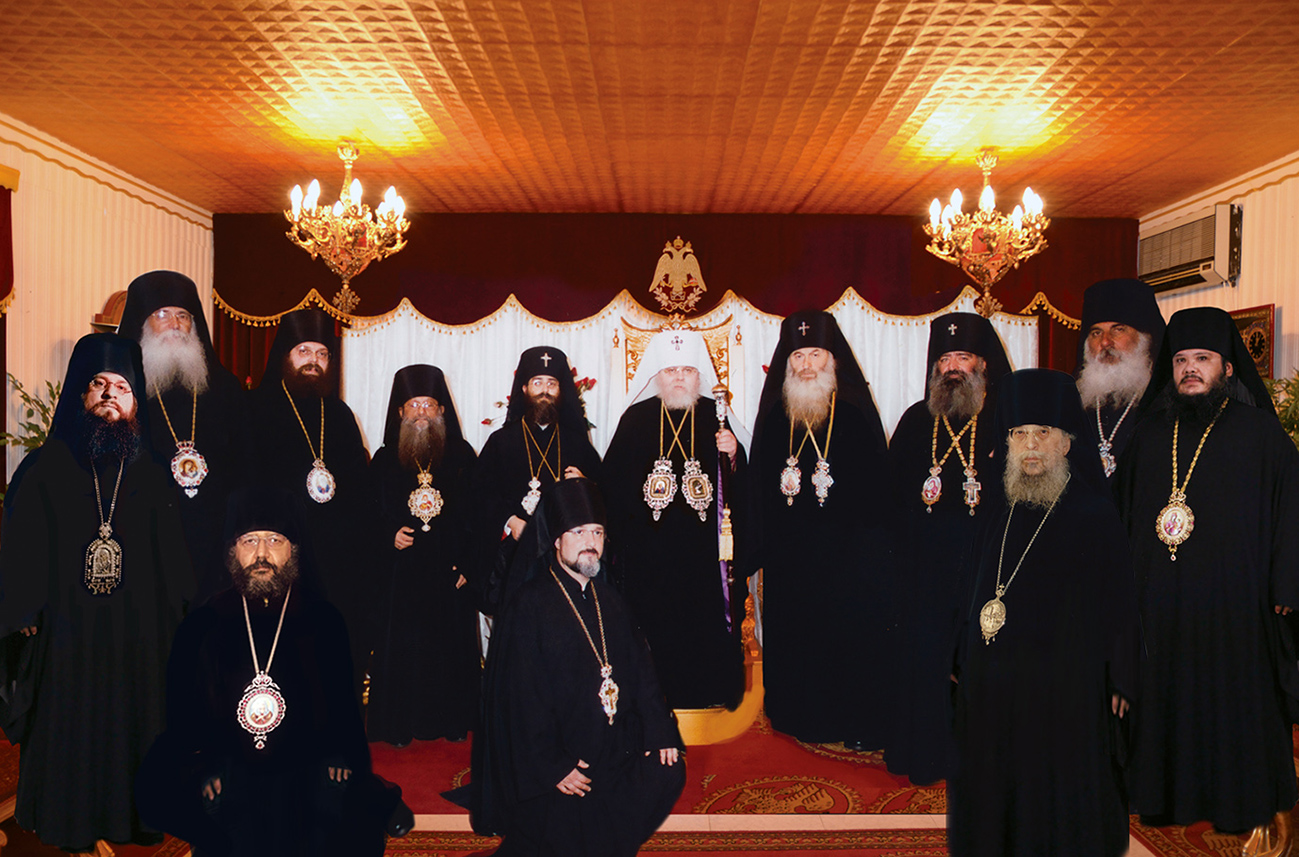Common Questions
Many of the common questions about Orthodox theology and worship are covered in the “Our Faith” Section of our website. However, that section does not answer many of the specific questions or concerns that first time visitors or new inquirers to Orthodoxy may have. Here we’ll try to answer some frequent questions that those raised in Protestant or Western Christian traditions (or even those who have not been raised Christian) may have.
What does it mean when you call the Orthodox Church the One, Holy, Catholic and Apostolic Church?
The Church is the holy institution founded by our Lord Jesus Christ for the salvation of men, bearing his holy sanction and authority, and composed of men having one and the same faith, and partaking of the same sacraments. It is divided into the clergy and laity. The clergy trace their descent by uninterrupted succession from the Apostles and through them from our Lord Jesus Christ.
The Church is ONE because our Lord Jesus Christ founded not many, but only one Church; HOLY because her aim, the sanctification and salvation of her members through the sacraments, is holy; CATHOLIC (meaning Universal) because she is above local limitations; and APOSTOLIC because she was “built upon the foundation of the Apostles, Jesus Christ Himself being the cornerstone” (Eph. 2:20). The Head of the Church is our Lord, Jesus Christ.
So are you saying that the [fill in the blank] Church isn’t a church?
What we are saying is that at Pentecost a single Church was founded. Christ and the Apostles preached unity: unity in faith, unity in the sacraments, unity as a single Church. Sadly, in 1054, the Roman Catholic church chose to depart from the Eastern Churches over claims of papal supremacy. In the 1500s, the Reformation saw the founding of numerous Protestant churches, further splintering the Roman Church. Without the authority of the Church, preachers established their own traditions to the point that “Bible churches” have proliferated in the United States and abroad such that there are now over 40,000 religious “denominations”. While these various communities may have good people in them, may truly love God and believe in Christ as Savior and Redeemer of the world, they simply cannot claim to be in continuity with The Church of the New Testament described in the Bible. The separation of Christian believers is a horrendous situation, and we pray that all who call themselves Christians and all who seek to love God will return to the faith once delivered to the Apostles (Jude 1:3). Then, we may all be members in the single body of the Lord, THE Church.
So if I am not already Orthodox, I won’t be welcome?
You are absolutely welcome! Orthodox Christians come from all walks of life and all different faith backgrounds. The one thing we have in common is that we all walked through the doors of an Orthodox Church at one point. Some were born into the faith, but for many of us, we walked through the doors just like you: curious, a little nervous, unsure, but wanting to find answers! And those of us who are already Orthodox know that every day we must struggle to work out our salvation. We are learning every day and striving to live our spiritual life according to the teaching of the Church. We pray, struggle, fast and worship together, and we always have room for one more!
I believe in the Bible. Why should I care about the Tradition of the Church?
What does it mean to believe in the Bible? There is no doubt that there is a Bible. The Orthodox Church believes in God, and we recognize that the Bible is the inspired Word of God, written by the Apostles. In fact, it was the Orthodox Church that determined, from many competing sources, which Books would be accepted into the New Testament. But why should you care about Tradition? If you follow the Bible, consider the admonitions of St. Paul.
In his Second Letter to Timothy, Paul wrote: “Take as a model of sound teaching what you have heard me say, in faith and love in Christ Jesus. Guard the rich deposit of faith with the help of the Holy Spirit who dwells within us” (1:13-14). Later, in the same letter, he further instructs Timothy, “You then, my son, be strong in the grace that is in Christ Jesus, and what you have heard from me before many witnesses entrust to faithful men who will be able to teach others also” (2:1-2). In the Second Letter to the Thessalonians, St. Paul is just as explicit: “So then, brethren, stand firm and hold to the traditions which you were taught by us, either by word of mouth or by letter” (2:15). Either by word of mouth or letter.
Scripture is clear that the spoken record of apostolic teaching, what the Orthodox Church calls Holy Tradition, has been handed down and preserved for us. Good and faithful men, the bishops of the Church, have handed on to us the teachings of the apostles, under the guidance of the Holy Spirit. Remember also, what St. John wrote. “And there are also many other things which Jesus did, the which, if they should be written every one, I suppose that even the world itself could not contain the books that should be written.” (John 21:25). Does the Bible say those things are unimportant? God forbid! The Apostles, witnesses to Christ’s ministry on earth, preserved what was not written “by word of mouth” for the Church.
OK, I understand the Bible speaks of tradition, but where does the Orthodox Church’s Holy Tradition come from?
There are five basic sources that comprise “Holy Tradition”, passed down from one generation to the next, from Christ to the Apostles, in written and unwritten forms. The first is Holy Scripture, both Old and New Testaments. The second source is the Liturgy, which includes the entire body of the Church’s common and public worship (including the sacraments of the Church). The third are the councils of the Church, the first one recounted in the Book of Acts (Acts 15), and their subsequent creeds and canons. The fourth are the Saints of the Church, especially the writings of a particular group of saints called the “church fathers”. The fifth source of Church Tradition is Church art. Saint John of Damascus said that words written in books are “images”, as are material images like icons. Art is the use of the material to express the intangible and the revelation of God.
I was told that the Orthodox worship pictures. Isn’t that against the Commandments?
Sorry, you were told wrong! The Holy Icons (“pictures”) are honored as reminders of the Glory and Presence of God, and venerated as such. ONLY God, the Father, His Son Jesus Christ, and the Holy Spirit are due worship. Icons, rather than attempting to depict reality, point to the Kingdom of God. They are often referred to as “picture windows to Heaven”. In other words, you will not only hear the Gospel in an Orthodox Church, you will see it! The icons act as “tools” in our spiritual worship and witness to the sanctification of all creation and matter that occurred when Christ Jesus, the Son of God, took on human flesh. Saints depicted in icons are living examples of Christians who lived holy lives of faith. Isn’t it fitting that they be remembered and honored for their example in God’s Holy temple? Many people keep pictures of relatives or even famous celebrities who inspire them as reminders of what they strive to be. In the same way, the icons of the saints are our constant reminders of how Christians should live, and we honor their memory when we gather as a community in worship.
But what is this about praying to saints? Shouldn’t God be the only object of our prayer?
First, most Orthodox prayers are addressed to God, whether as Father, Son or Holy Spirit. But it is true that there are many Orthodox prayers addressed to saints such as the Virgin Mary or other holy forerunners. But when you listen to the prayers, they are almost always intercessory prayers, asking the saints to pray to God for us. When you think about it, this is not unusual behavior among Christians around the world. How often have you asked someone to pray for you, or been asked to pray for a friend. That is intercessory prayer! How many times have you silently or aloud asked a recently departed friend or family member to watch over you? That is intercessory prayer. The saints are our friends in God’s kingdom. Who better to present our prayers to God?

